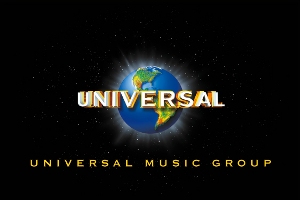Universal Music Group battles it out with state and critics over purchase of EMI’s recorded music unit for $1.9 billion
Universal Music, one of the biggest music labels in the world is on verge of acquiring a large stake in its competitor’s firm EMI for the sum of $1.9 billion. Federal Trade Commission and the European Commission have formally set out their objections to this deal, which would combine Universal’s stars such as Lady Gaga and Rihanna with the British music label, EMI’s catalogues which include Blur, The Beatles and Katy Perry. Citigroup Inc is the seller of EMI. It took over the group from its previous owner, Terra Firma in 2011.
Universal Music Group and Live Nation Entertainment put forth their views regarding the deal towards the Judiciary Senate, stating the major music companies have undergone a fall in revenue by more than half in the last 5 years and the increased competition in the digital market has justified their action. Also with the number of players on the rise and more scope for musicians to release independently the possibility of major companies controlling the market should be less worrisome.The increased popularity of online services in providing music in comparison to Major music labels.
The Judicial Senate hearings regarding the transaction have already started.EU Council has submitted a 194-page statement of objections that could put pressure on Universal to offer to sell some catalogues or propose improved licensing deals compared to rivals and online services to get clearance for the takeover.In April, Sony had secured EU approval to buy EMI’s separate music publishing business after agreeing to sell some catalogues. Universal Music Group Chairman and Chief Executive Lucian Grainge told Sen. Al Franken and others that “Digital is our future.” They had more than 100 deals already and they continued to look for more avenues. However, Universal have been found to be difficult in licensing its massive catalog to online services, at times doing so only if ownership stake is acquired in the startup trying to buying licenses from them..
According to 2011 data from Nielsen SoundScan, Universal Music Group, a subsidiary of the French conglomerate Vivendi is the biggest music company in the US market with a sizeable global market share as well. Sony & Warner share the 2nd and 3rd spot respectively. Apart from this more than half of the Billboard Hot 100 songs of 2011 came from artists associated with UMG or EMI.
Competitors such as Warner and America Institute of Antitrust have been highly criticalof this deal. It would centralize the music industry and increase the ability of the major players to control price and quality of music. Also is the issue of licenses, Universal Music has been stringent and expensive compared to its rivals. “If there is a likelihood that Sony and Warner would perceive they are unlikely to take market share from Universal/EMI, the three firms are more likely to consciously act in parallel in making pricing and other strategic decisions, such as which platforms should receive music licenses and on what terms,” said the American Anti-trust institute in a letter to the senate.
Many artists from the Mega label Universal such as Mary J Blige and Peter Frampton have written letters to the US Senate to support the transaction. The first regulatory clearance has already been achieved by Universal after competition enforcers in New Zealand gave the green light.The real question of debate thus falls on whether increase in market share by a company would affect market conditions taking into account the current music scene and digitization. In addition, would this help in keeping musicians happier and not affect the quality of music.EU Competition Commissioner Joaquin Almunia will decide by Sept. 6 whether to clear or block the acquisition.



